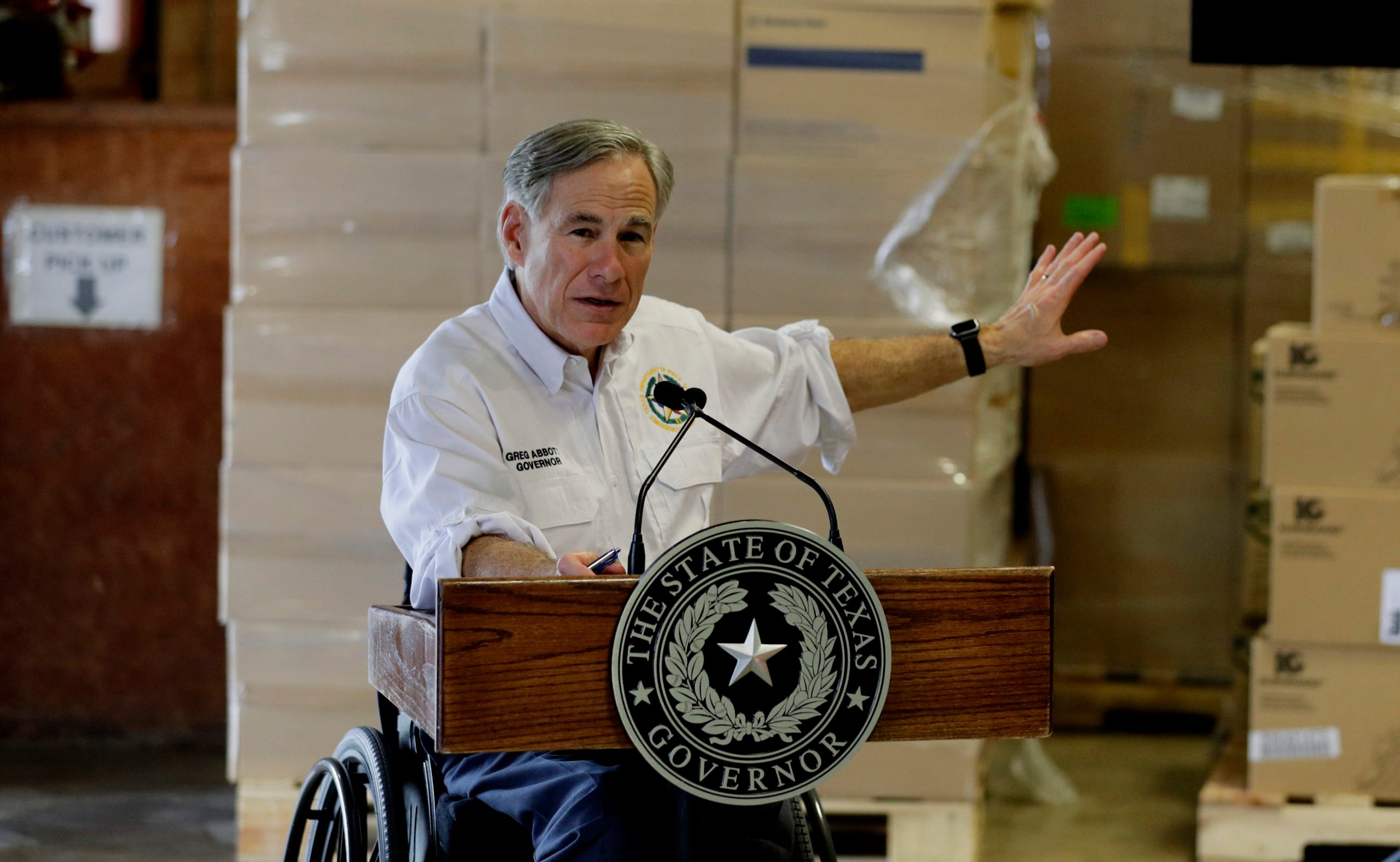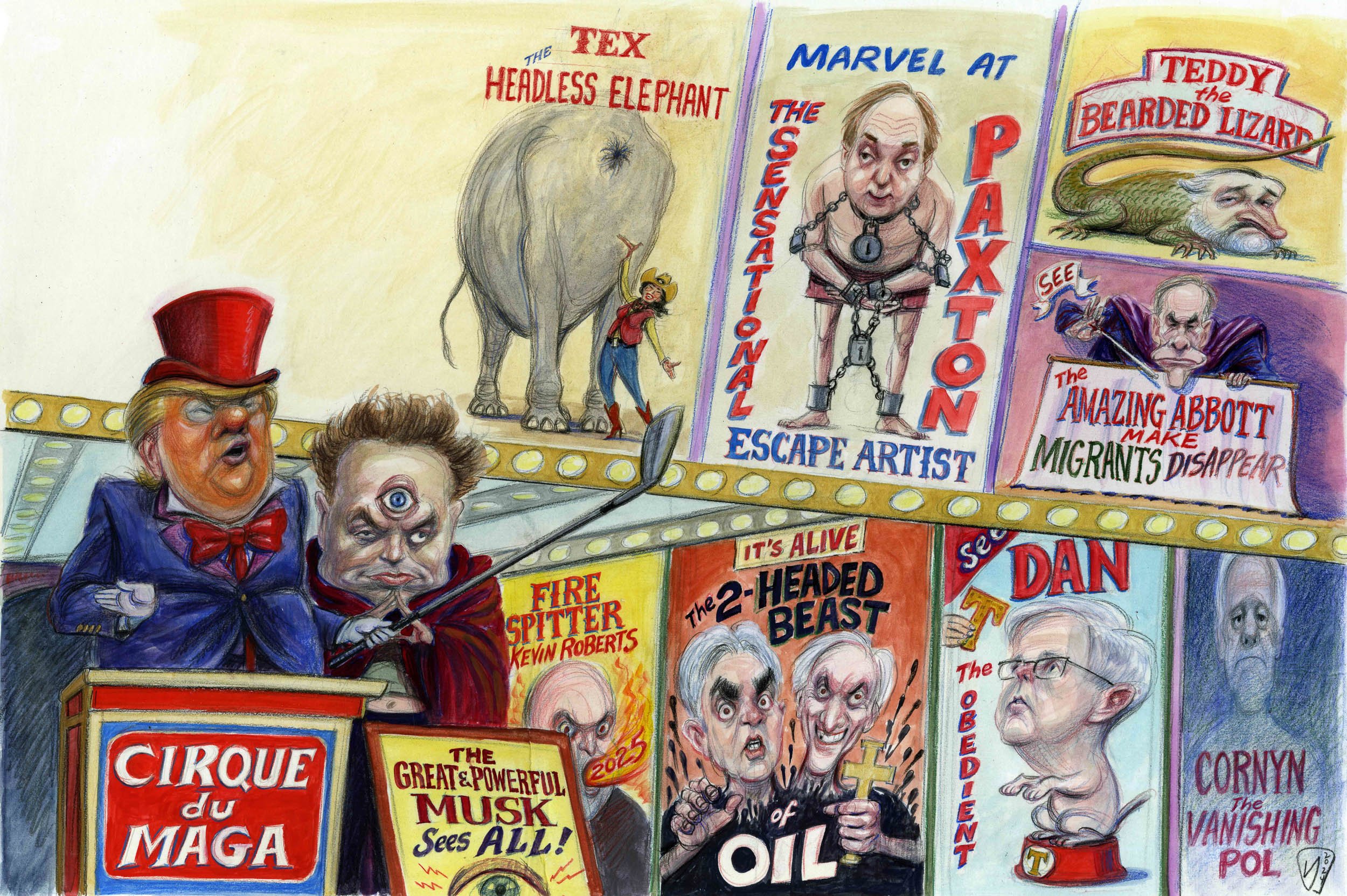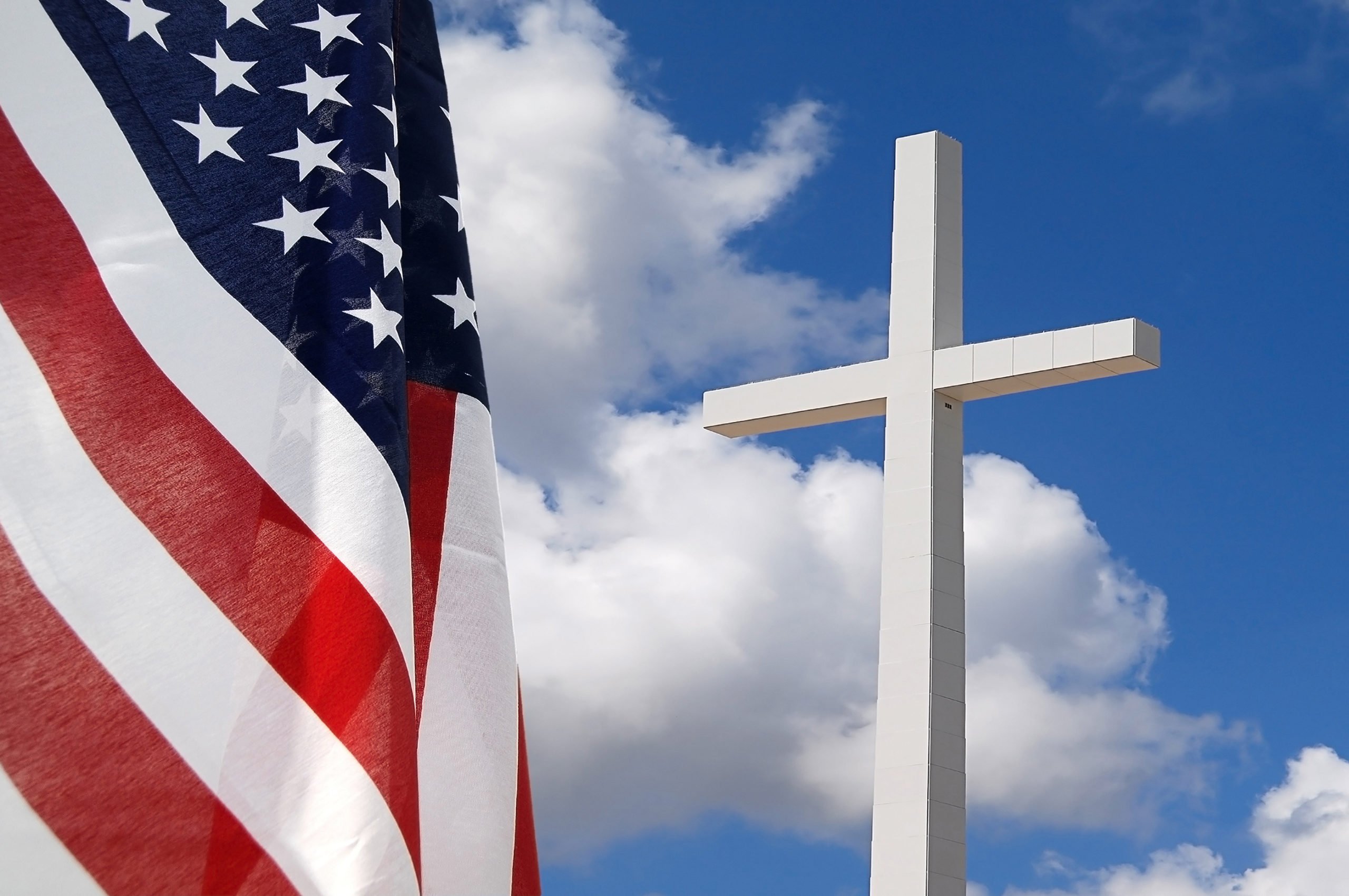
Abbott Puts Cabal of His Billionaire Donors, Industry Lobbyists in Charge of Restarting Texas’ Economy
The governor’s ‘strike force’ is composed of some of the most powerful moguls in the Lone Star State. In a time of pandemic, critics say it’s reckless pay-to-play politics.

Even as it’s still far from clear whether Texas has seen the peak of the COVID-19 pandemic, Governor Greg Abbott is gearing up to restart the state’s economy. On Friday afternoon, he announced the creation of the “Strike Force to Open Texas,” which he has charged with leading the Texas economy back to Abbott’s sense of normal.
While it’s not apparent exactly what the “strike force” will strike against, its members will likely have tremendous influence over what the reopening of the state’s business activity will look like. It’s a who’s who of Texas elite: The governor named 39 people to the task force’s special advisory council, many of them white men who are millionaires and billionaires and political patrons of the governor.
At least 21 of the council advisors have contributed more than $6 million to Abbott’s campaign war chest since 2015, according to an Observer analysis of campaign-finance records. Mike Toomey, a conservative superlobbyist known as one of the most powerful people in the state, will be in charge of the task force’s staff. Members of the council include billionaire business titan Drayton McClane Jr., who has contributed $1 million to Abbott; Robert Rowling, who has given around $750,000; Hilcorp Energy Company executive chairman Jeff Hildebrand, who has given $500,000; Nancy Kinder, who, with Kinder Morgan pipeline mogul and husband Richard Kinder, has given $525,000; Houston Rockets owner and casino and restaurant tycoon Tilman Fertitta, who has contributed $550,000; and Marc Watts, president of the conglomerate that owns Gulf States Toyota, whose PAC has funneled $500,000 to Abbott’s campaign account.
Other members of the so-called strike force who are also major Abbott donors include IBC Bank CEO Dennis Nixon, former Rackspace CEO Graham Weston, Perry Homes CEO Kathy Britton, construction magnate Alonzo Cantu, and restaurant operator Bobby Cox.
Members’ companies range from oil and gas, hotels, restaurant chains, fitness centers, and retail and could benefit significantly from an accelerated lifting of the statewide stay-at-home order, which currently restricts business operations to only essential services.
Abbott also announced new executive orders, including one establishing that retailers will soon be able to offer “retail to-go,” similar to curbside pickup, which restaurants have been able to do. It’s the first phase in what he says will be a gradual reopening of business in accordance with public health guidelines. Abbott isn’t alone: President Donald Trump is leading the aggressive charge to get back to business as soon as possible.
But public health experts warn that it’s still too early to lift restrictions aimed at flattening the curve, especially in states like Texas, where testing capacity is among the lowest per capita in the country. Abbott promised that the state would soon have a “dramatic increase” in testing capabilities but offered no clear details.
In addition to the special council, the task force has a number of working groups aimed at specific parts of the reboot. The one for the state’s energy sector is led by Julia Rathgeber, the president and top lobbyist of the Association of Electric Companies of Texas, and Todd Staples, the president and top lobbyist of the Texas Oil & Gas Association—another key political ally for Abbott. The working group on the workforce, economic development, and international trade doesn’t include any rank-and-file members of the workforce. Instead, it’s headed up by the CEO of the state’s Economic Development Corporation, which has long been notorious for operating slush fund-style corporate tax incentive programs, along with Secretary of State Ruth Ruggero Hughs, who previously served on the Texas Workforce Commission on behalf of employers.
The governor has drawn considerable flak for assembling a task force to reopen the economy that is dominated by corporate CEOs and industry lobbyists and excluding local elected officials or workers.
“The absence of any worker voice, any local voice, anything other than this pay-to-play system that has permeated government for Abbott’s entire tenure, is a slap in the face to the folks who are out there working every day at great risk to themselves,” Texas AFL-CIO president Rick Levy told the Observer. “If the only voices that matter to Governor Abbott are this who’s who of corporate Texas, then we’re very concerned about the position that working people will be placed in as we move forward.”
San Antonio Congressman Joaquin Castro blasted the governor in a call with reporters, saying that Abbott has taken a “see no evil, hear no evil” approach and is advancing a reckless return to normalcy. “I heard no plan in there,” Castro said of Abbott’s announcement.
While Abbott named James Huffines, an Austin bank executive and former UT regent, as the ostensible head of the group, he tapped Toomey—arguably the most powerful lobbyist in Texas—as the chief operating officer and the force’s de facto director. Formerly chief of staff and power broker for Rick Perry—who paved the pay-to-play way for Abbott—Toomey has long had a reputation as one of the shrewdest influence peddlers in the state. As Texas Monthly wrote in a 2003 profile, the Republican operative has “promoted a steadfast conservative agenda with little tolerance for compromise with—or mercy for—his adversaries.” He first earned his nickname, “Mike the Knife,” as an aggressive budget-cutter while serving in the Texas House in the 1980s.
“It’s begging for trouble to delegate Texas’ economic restart to a revolving-door lobbyist who simultaneously represents a slew of clients in the hotel, construction, tech, energy, insurance, and drug industries,” said Craig McDonald of Texans for Public Justice, a watchdog group that has tracked Toomey’s career. “Couldn’t the governor find somebody without all that baggage pushing for the interests of the big boys?”
Up until two days ago, when he reportedly deregistered as a lobbyist, Toomey represented an array of powerful interests, including the Texas Builders and Contractors Association, the Texas Hotel and Lodging Association, the Real Estate Council of Austin, the grocery chain H-E-B, UnitedHealth, and pharma giant Merck.
Whether or not he is officially registered as a representative of industry is immaterial, critics say. It’s impossible to disentangle Toomey from the interests of big business. He is a creature of the lobby who has spent the past few decades helping the most powerful business forces in Texas advance not just piecemeal priorities but sweeping ideological projects that have turned the state into the deregulated, tax-averse corporate haven that it is today.
The governor has long rewarded his mega-donors with political sinecures—appointments on government commissions and university boards of regents—and has surrounded himself with aides who have swung in and out of the revolving door between industry and government. Clean government advocates are concerned that this could play out again with a politically motivated task force.
“Getting a bunch of smart business people together to work on this can certainly be a good thing, but it is alarming to see so many big political donors and industry lobbyists included. In a situation like this, public health absolutely must be prioritized above all else,” said Anthony Gutierrez, president of Common Cause Texas, a good-government advocacy group. “The concern in having a committee stacked with political donors and industry lobbyists is that they may allow corporate or political interests to trump what’s best for public health.”
Castro warns that the governor is opening the door for grift and corruption to run rampant under the cover of a global pandemic. The San Antonio Democrat says the governor’s pay-to-play politics has allowed for an “incredible looting of state funds” via “sweetheart deals worth millions, sometimes billions.”
“There’s a real danger that the state will be receiving billions of dollars from the federal government and that some of this money could be looted [as it passes through the state government]. It certainly has in the past, and that’s my concern,” he said.
The governor’s office did not immediately respond to a request for comment.
It’s unclear just how much of the task force’s decisions—ones that will have a huge impact for ordinary Texans—will be made in the public eye. The precedent isn’t encouraging. Lieutenant Governor Dan Patrick launched his own task force to restart the economy last week. He put Brint Ryan, the Texas king of corporate welfare, in charge but has kept the group otherwise shrouded in secrecy.
Find all of our coronavirus coverage here.
Read more from the Observer:
-
Mi Barrio No Se Vende: San Antonio is planning to demolish its oldest and largest public housing project, threatening the future of a deeply historic neighborhood—one that anchors the city’s identity as the nation’s Mexican American capital.
-
From Jail to the Streets: One Texan’s Story During COVID-19: The homeless are 11 times more likely to be incarcerated than the rest of the population.
-
‘I’m in Limbo Here’: Texans Are Met with an Overwhelmed and Antiquated State Unemployment System: The safety net meant to support the second largest workforce in the country is using decades-old technology. The workforce agency was trying to replace it when the pandemic hit.


